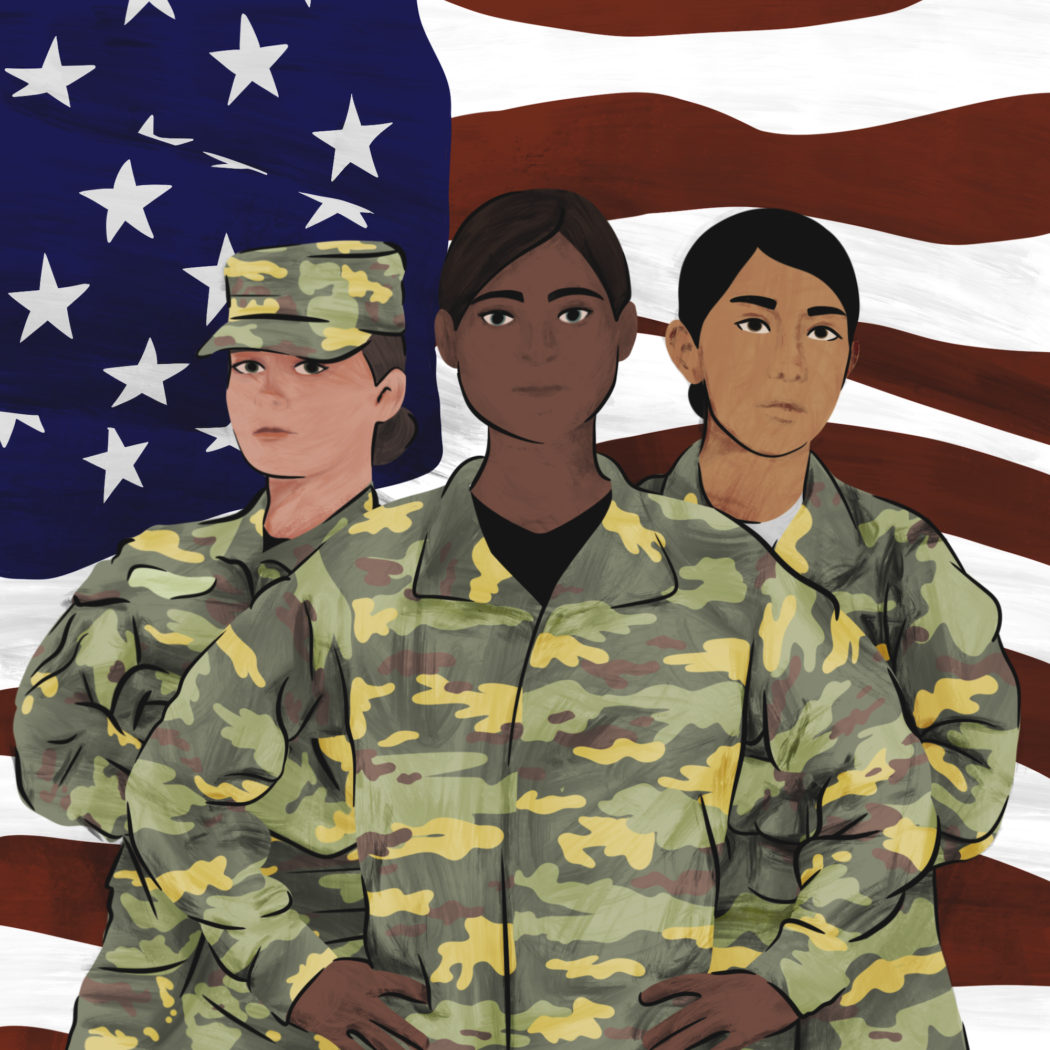Underestimated and undervalued
It was Emily Hugie’s first time at the Utah State University Veterans’ Resource Office.
There was no question in her mind that she belonged there. She had served for four years, building relationships and creating bonds she hadn’t found in the civilian world. She had worked harder than she ever had in her life. She had been deployed twice.
But the man behind the counter didn’t see any of that at first. He didn’t even ask if she was the service member.
“I assume you are using your parents’ GI Bill,” he said.
“I can’t think of a better word right now,” Hugie said. “But ‘underestimated’ definitely comes to mind for how I felt. Like I wasn’t someone who could have been a service member.”
“Underestimated, undervalued — a bit like my service means less than the boys because they so quickly assume I’m not a vet or are so surprised to find out I am,” she said.
It boils down to proof for women in the military. Proof they are strong enough. Proof of their capabilities. Proof they have a place there. Proof they deserve respect.
“We had to fight harder for the same amount of respect,” Hugie said.
For Hugie, joining the military was like going back in time. She worked with old equipment, old aircraft and older men who told her how much better it was, and how much more they could do, before women joined the military.
“Sometimes I would come in from a job and tell them about it, and some of the men wouldn’t believe me until another man backed up my story,” Hugie said. “The men I worked closely with — I worked so hard — they could see that, so they would give me respect and trust my opinion without needing validation.”
Hugie was in a squadron with about five other women. Upon arrival, she was taken under their wing and mentored. As women, they were watching out for each other.
They told her who to not be around alone, and who was dangerous when drunk.
About one in four U.S. servicewomen report being sexually assaulted in the military, according to the Department of Veterans Affairs. Of those who reported cases, 38% experienced professional retaliation.
“Getting out of the Navy, I did this incredible thing,” Hugie said. “I should be proud of that.”
…
Chasity Tucker served in the U.S. Army National Guard as a supply specialist.
“When I was in, I wanted to show that I was more than what people saw me as,” Tucker said.
While serving, she received a bachelor’s degree and a master’s degree, raised four children, worked as a personal trainer and became the district health and wellness director of the YMCA in Virginia.
“I remember climbing a 90-foot tower in bootcamp,” Tucker said. “People looked at me and said, ‘You won’t be able to make it, you won’t be able to climb that.’ It was the guys. Yeah, well okay, this girl powered through it and muscled every bit of it.”
“Women have always been looked down at,” she said. “When the female proves she is more than just a gender, it’s like ‘Oh, look at that beast.’”
…
Rebecca Haggerty served for eight years in the U.S. military as a cyber operations tactical communications officer.
“No one expects that I was in the military, let alone what I did,” Haggerty said. “That always throws people for a loop.”
When she was a first lieutenant, she was personally requested to join the joint special operations command in Europe. While serving, Haggerty received her bachelor’s and master’s degrees.
She had been deployed twice.
“The challenges I faced were challenges a lot of females faced,” Haggerty said. “You will say something, and it is a stupid idea. A guy will say the exact same words you said five minutes ago, and it is an amazing idea. It frustrates the hell out of me. It still happens.”
Haggerty is now receiving a degree from USU’s rotorcraft program to become a certified helicopter pilot.
“I have led two teams in combat, I know what I am doing,” she said. “But I have to take these leading teams classes.”
Leaving the lecture one day, she struggled not to be vocal and share as much insight as she wanted to. Haggerty was about to apologize to a fellow student for talking too much when the woman turned to tell Haggerty how insightful her comments are. It was a reassuring moment for Haggerty.
…
“It feels exhausting, frustrating and very demotivating at times,” Hugie said. “Why work so hard when they don’t value what you say, or trust you or understand your job as well as the men?”

